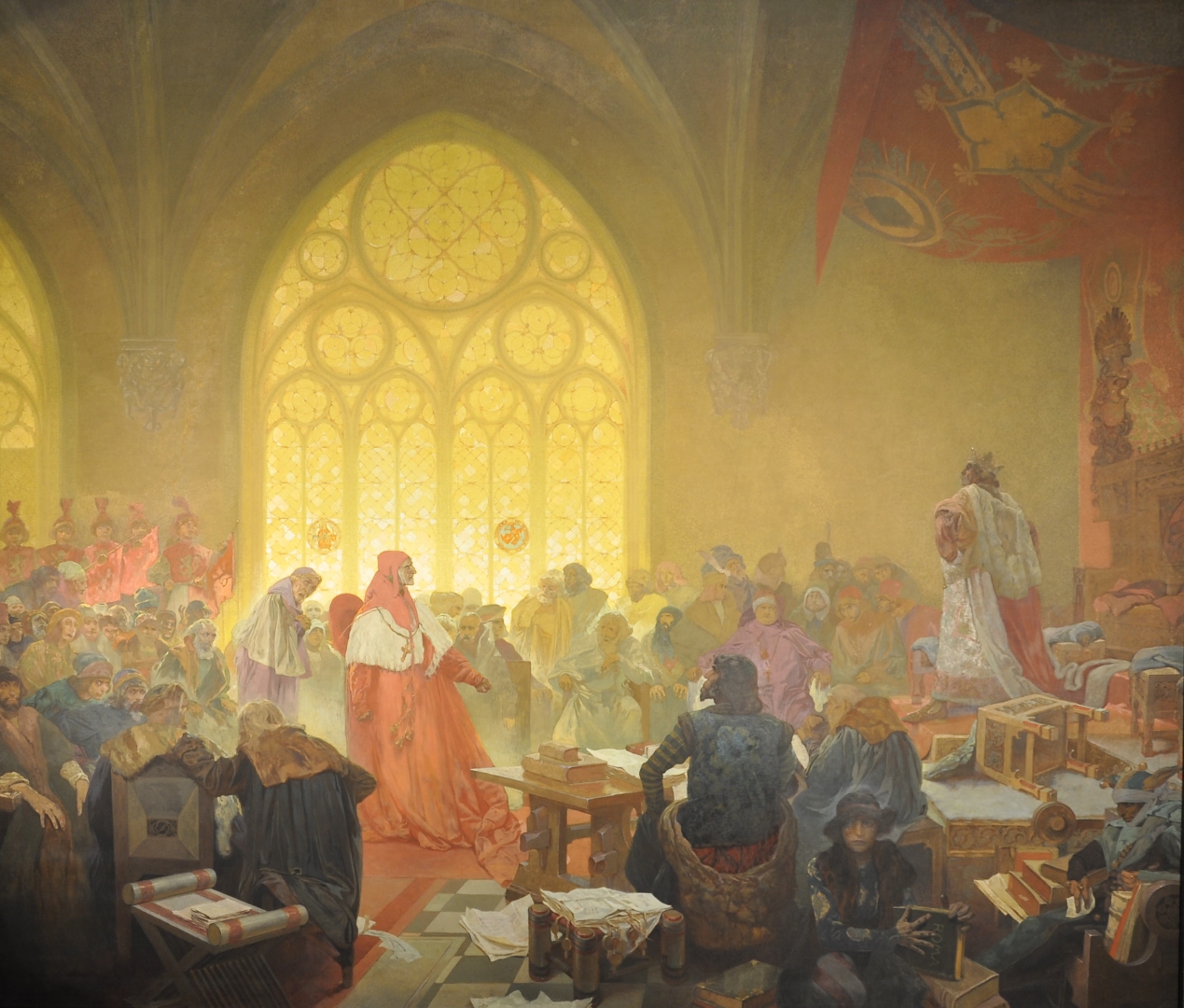GEORGE OF PODĚBRADY
George of Podebrady was a Czech king who reigned from 1458 to 1471. He was known for his straightforwardness, principles, and diplomacy. His aim was to equalize relations between the Catholic Church and Hussite believers in Bohemia by recognizing the Basel Compacts. His kingdom was characterized by relative peace and stability. George of Podebrady was one of the few rulers who were centuries ahead of their time.
The painting captures a scene from 1462 when King George rejects the demand of Pope Pius II to renounce the Hussite faith and comply with papal claims to strengthen the Catholic faith in the Czech lands. The church dignitary in red at the center of the painting is the envoy of the Czech kingdom, Cardinal de Valle, serving in Rome for the benefit of the Czech lands. The king reacts explosively, rising sharply from his chair, overturning it, and declaring that he does not acknowledge the pope as a judge of his conscience, family, or nation. The papal envoys present are taken aback by the king's sharp response. In contrast, expressions of pride can be seen on the faces of the Czech nobility.
The painting features some notable figures of the time. The influential nobleman from southern Bohemia, royal councilor Lord of Rozmberk, is depicted in the foreground as a seated man with a rose on his back. Hussite theologian Archbishop Jan Rokytzana sits opposite him, wearing a cross on a purple robe. In the right corner of the painting is a wise and educated man in a fool's cap who has renounced all his privileges to advise the king - Brother Jan Paleczek, the most famous jester in Czech history. A boy assertively closes a book labeled Rome, symbolizing the end of all dealings between the pope and George of Podebrady.

